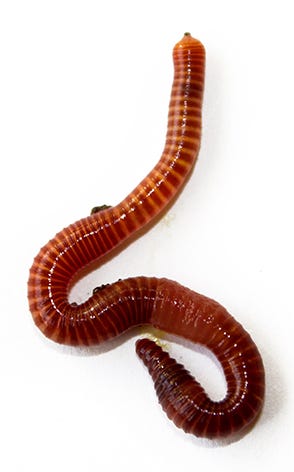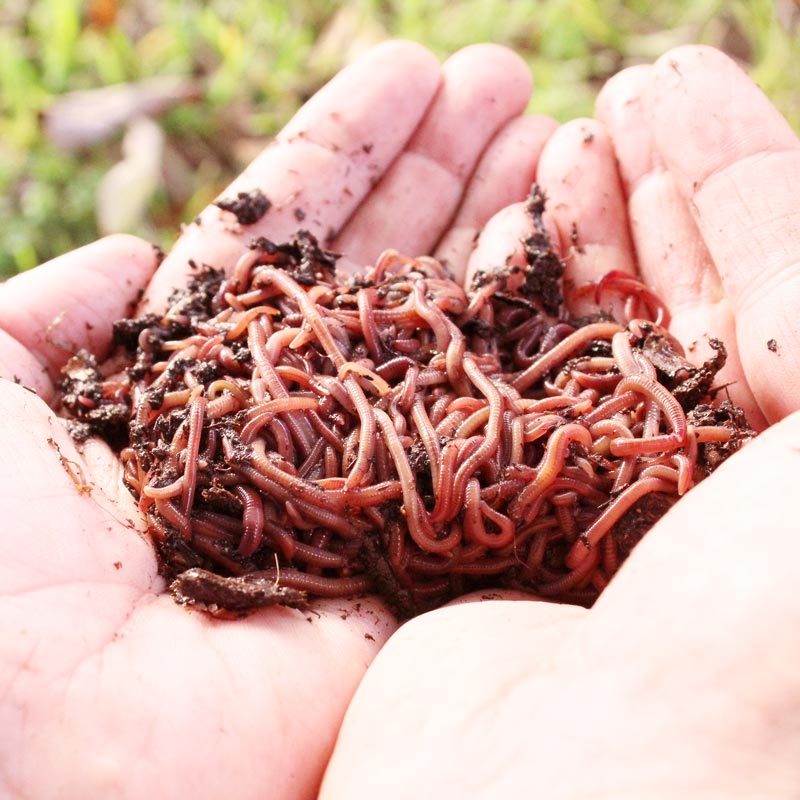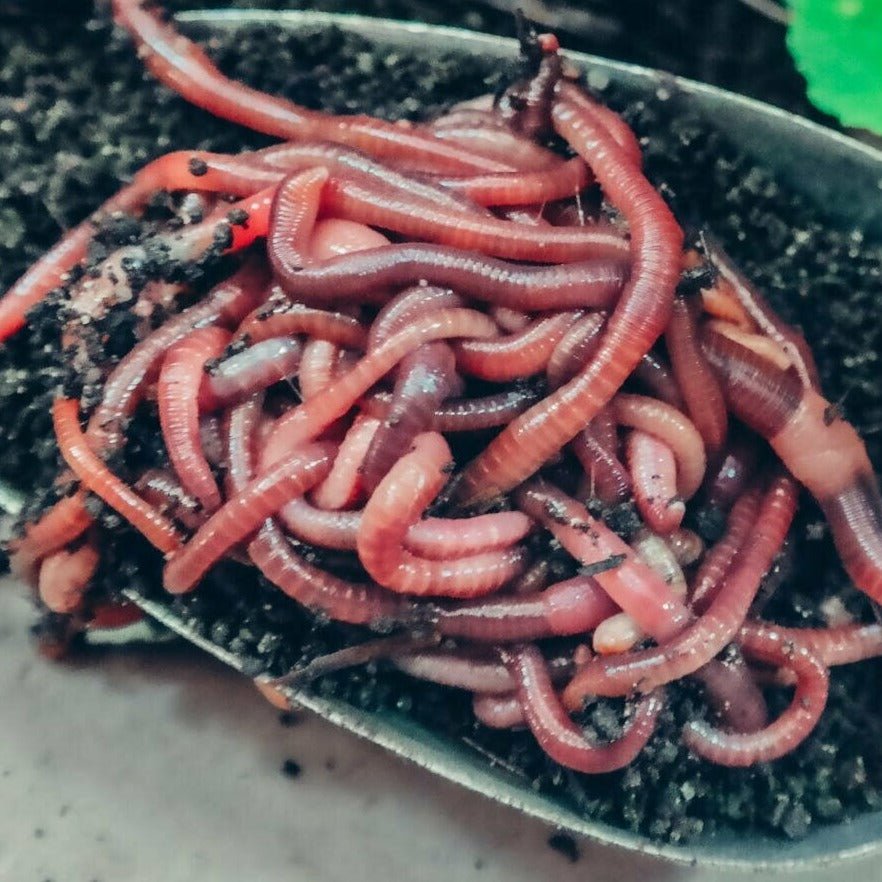Red Wiggler Worms - Efficient Decomposers for Your Compost Container
Red Wiggler Worms - Efficient Decomposers for Your Compost Container
Blog Article
Red Wiggler Worms Demystified: Unlocking the Tricks of Vermiculture for Greener Living and Nutrient-Rich Soil
In the world of sustainable methods for enriching dirt quality and advertising eco-conscious living, red wiggler worms play an essential yet often forgotten function. Red Wiggler Worms. Comprehending the complexities of caring for these worms, optimizing their environment, and using their castings can lead to a greener lifestyle and much healthier dirt for plants to flourish.
The Duty of Red Wiggler Worms
Red Wiggler worms play an important function in composting systems by efficiently breaking down natural matter into nutrient-rich castings. These ravenous eaters take in a range of natural materials, such as cooking area scraps, lawn waste, and paper items. As they feed, the worms' digestion processes break down the raw material into a penalty, dark, and nutrient-dense material called worm castings or vermicompost.
The castings created by Red Wiggler worms are highly helpful for soil health and wellness and plant growth. They are rich in essential nutrients like nitrogen, phosphorus, and potassium, which are crucial for supporting healthy plant advancement. Furthermore, worm castings consist of advantageous microbes and enzymes that assist improve dirt structure, increase water retention, and improve nutrient uptake by plants.
Advantages of Vermicomposting

It boosts dirt framework, improves soil oygenation, and enhances dirt moisture retention. Vermicompost additionally enriches the soil with essential nutrients like nitrogen, potassium, and phosphorus, advertising plant development and overall soil fertility.
In addition, vermicomposting assistances sustainable gardening techniques by providing a natural and chemical-free choice to artificial fertilizers. Red Wiggler Worms. This ecologically pleasant approach not only enriches the soil but likewise assists reduce reliance on hazardous chemicals, promoting a greener and a lot more lasting means of gardening
Setting Up a Worm Bin
When establishing a worm bin for vermicomposting, appropriate configuration is critical to ensure the success of the composting process. The very first action in setting up a worm container is selecting an ideal container. This can be a plastic container or wooden box that offers enough room for the worms to relocate about and has correct water drainage openings to protect against waterlogging. Next off, a bed linens product such as shredded newspaper, cardboard, or coconut coir must be added to the bin. This bedding provides a comfortable setting for the worms and aids keep moisture levels.
After including the bed linen, introduce the red wiggler worms to the bin. It is advised to begin with a little number of worms and slowly increase as they increase. The worms must then be offered with food scraps such as fruit and veggie peels, coffee grounds, and eggshells. It is necessary to avoid including meat, dairy products, oily, or salted foods to protect against bring helpful resources in pests and creating unpleasant odors.
On a regular basis check the wetness levels and temperature in the worm container to make certain optimal conditions for the worms. With proper setup and maintenance, the worm container will successfully convert organic waste right into nutrient-rich garden compost for your plants and yard.
Gathering Worm Spreadings
To successfully accumulate nutrient-rich worm spreadings from your vermicomposting system, a systematic harvesting technique is essential. When it comes time to harvest the worm castings, there are a few crucial actions to comply with to make certain a successful procedure.

Troubleshooting Common Issues
Determining and addressing common challenges that might develop throughout the vermicomposting procedure is crucial for maintaining a effective and healthy and balanced worm container. Including excess food scraps can lead to a build-up of dampness and level of acidity in the worm container, potentially harming the worms. Another issue is unpleasant smells emanating from the worm bin.
Furthermore, if the worm population is declining or the worms appear undesirable, it can be as a result of ecological stressors such as extreme temperatures or pH levels. Checking these aspects and making needed modifications is crucial for the wellness of the worms. By fixing these common issues promptly, vermicomposters can make click to investigate certain a successful and smooth vermicomposting process while preserving a prospering worm population.

Verdict
In conclusion, red wiggler worms play a critical duty in vermiculture by damaging down natural issue right into nutrient-rich dirt. Establishing up a worm container is necessary for effective vermiculture, and collecting worm castings supplies useful compost for gardening.
As they feed, the worms' gastrointestinal processes break down the natural issue right into a penalty, dark, and nutrient-dense material known as worm spreadings or vermicompost.
The spreadings created by Red Wiggler worms are extremely valuable for dirt health and wellness and plant growth. Adding excess food scraps can lead to a build-up of moisture and level of acidity in the worm bin, potentially harming the worms.In addition, if the worm populace is decreasing or the worms show up harmful, it might be due to environmental stress factors such as severe temperature levels or pH levels. Establishing up a worm bin is necessary for successful vermiculture, and harvesting worm spreadings supplies important compost for horticulture.
Report this page